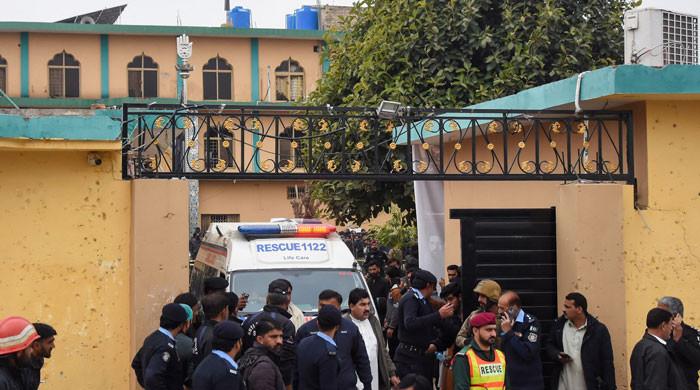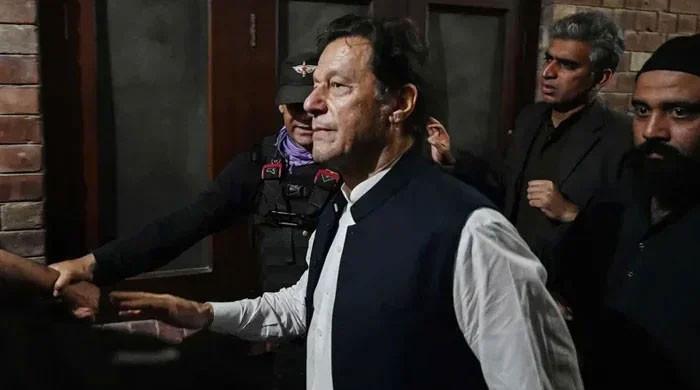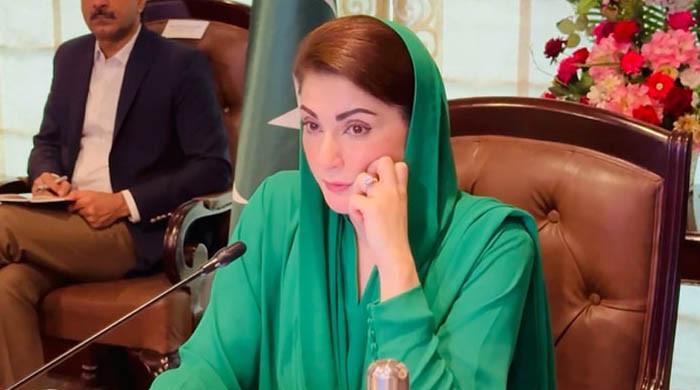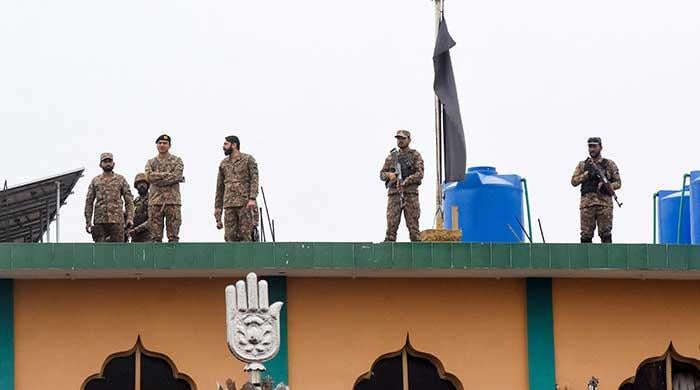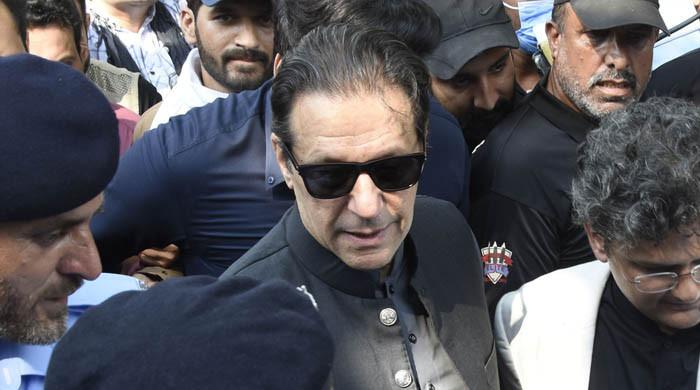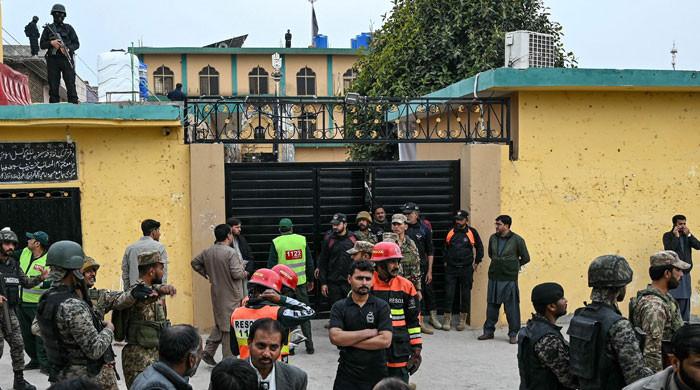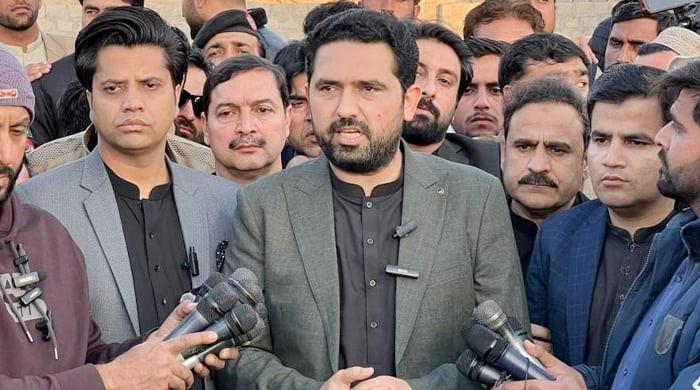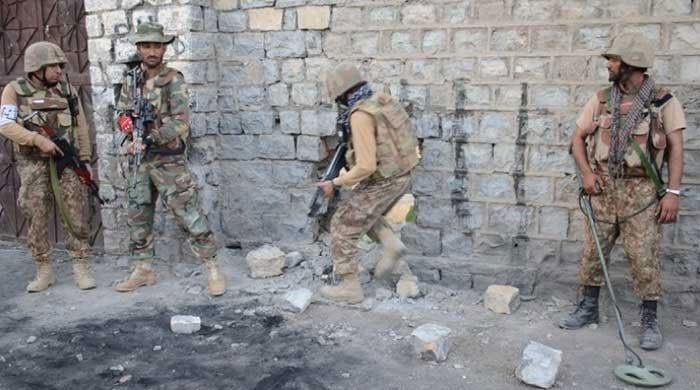Lahore records 'hazardous' air quality, Delhi ranks as second most polluted city
Thick toxic haze blankets Punjab capital reducing visibility and raising risk of spike in respiratory complaints
November 15, 2025
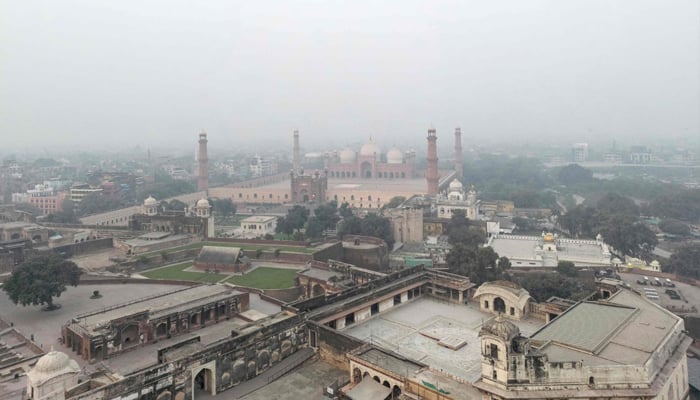
- Lahore records extremely high AQI value of 533 around 9am.
- Main pollutant 68.4 times higher than WHO annual guideline.
- New Delhi's air quality remains in "hazardous" category.
Lahore’s air quality remained firmly in the "hazardous" category on Saturday morning, according to Swiss air quality monitor IQAir, placing Pakistan’s cultural capital on top of the world’s most polluted major cities.
The city recorded an AQI of 533 around 9am, one of the highest in the world at the time, as a thick toxic haze blanketed Lahore for days, reducing visibility and triggering a spike in respiratory complaints across Punjab.
IQAir reported Lahore’s main pollutant as cancer-causing particulate matter PM2.5, recorded at 341.9 µg/m³ — 68.4 times higher than the World Health Organisation’s annual guideline.
These microscopic particles are small enough to enter the bloodstream, increasing the risk of stroke, heart disease, lung cancer and severe chronic respiratory illnesses.
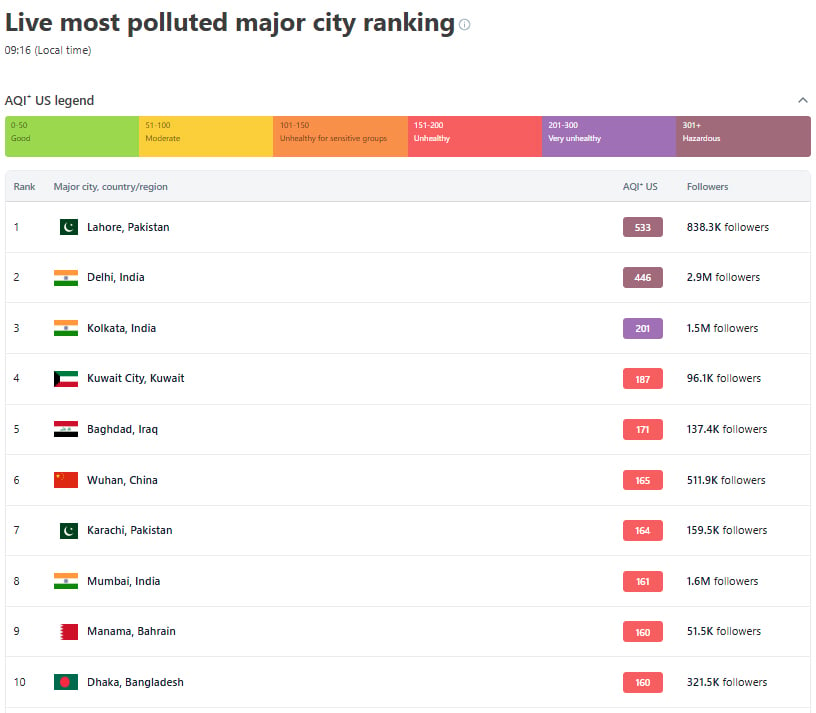
Residents have reported throat irritation, shortness of breath and itchy eyes, with public health experts advising people to stay indoors during peak smog hours and to wear N95 or P100 respirators outdoors.
Just across the border, New Delhi again topped the global pollution ranking with an AQI of 508 around 8am, but later dropped to 446, still in the "hazardous" category. Its PM2.5 concentration stood at 59.7 times the WHO limit, as the sprawling metropolis of 30 million people remained submerged under acrid winter smog.
Cooler seasonal air traps pollutants close to the ground, forming a deadly winter mix of crop-residue smoke, traffic emissions, industrial fumes and construction dust. Delhi is frequently ranked among the world’s most polluted capitals, with authorities often attributing the annual smog crisis to farmers burning crop stubble in neighbouring Punjab and Haryana.

Meanwhile, Kolkata ranked third on the global pollution index, as much of South Asia experienced a seasonal surge linked to a phenomenon known as thermal inversion, where a warm layer of air traps colder, polluted air at ground level.
Experts warn that this “lid effect”, combined with increased emissions from heating and idling engines, creates a toxic blanket over cities during winter months.
UNICEF cautions that polluted air puts children at heightened risk of acute respiratory infections, while a 2023 study found air pollution can cut life expectancy by more than five years in parts of South Asia.
Livelihoods across the region are routinely disrupted as smog forces school closures, slows transport and strains public health systems.
In Pakistan, Punjab’s first advanced Smog Monitoring and Control Centre continues to collect real-time air quality data, while anti-smog guns are being deployed at identified hotspots across Lahore.
Authorities and health experts have urged residents to reduce exposure by staying indoors during high AQI hours, improving indoor ventilation with MERV-13 or higher filters, using HEPA air purifiers, avoiding indoor smoke sources, and maintaining hydration. Consuming antioxidant-rich foods and omega-3 fatty acids may also help the body counteract pollution-related oxidative stress.
Experts note that while short-term mitigation can reduce exposure, long-term improvement depends on stricter policy enforcement, cleaner energy transitions and sustained regional cooperation — particularly as winter deepens and the seasonal dynamics of air pollution continue to intensify across South Asia.
— Additional input from Reuters and AFP




